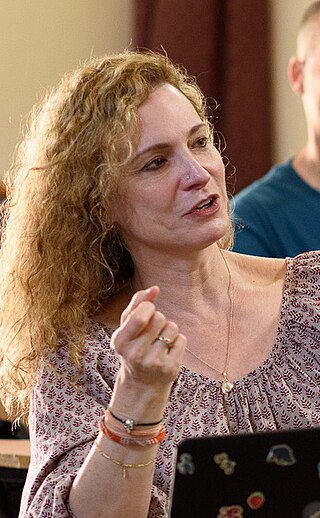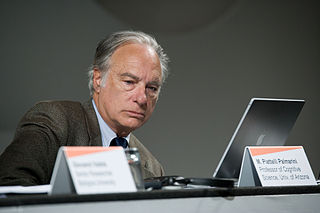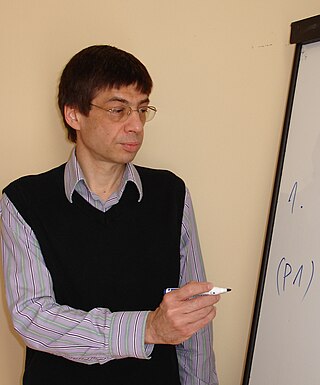
Cognitive science is the interdisciplinary, scientific study of the mind and its processes with input from linguistics, psychology, neuroscience, philosophy, computer science/artificial intelligence, and anthropology. It examines the nature, the tasks, and the functions of cognition. Cognitive scientists study intelligence and behavior, with a focus on how nervous systems represent, process, and transform information. Mental faculties of concern to cognitive scientists include language, perception, memory, attention, reasoning, and emotion; to understand these faculties, cognitive scientists borrow from fields such as linguistics, psychology, artificial intelligence, philosophy, neuroscience, and anthropology. The typical analysis of cognitive science spans many levels of organization, from learning and decision to logic and planning; from neural circuitry to modular brain organization. One of the fundamental concepts of cognitive science is that "thinking can best be understood in terms of representational structures in the mind and computational procedures that operate on those structures."
Evolutionary linguistics or Darwinian linguistics is a sociobiological approach to the study of language. Evolutionary linguists consider linguistics as a subfield of sociobiology and evolutionary psychology. The approach is also closely linked with evolutionary anthropology, cognitive linguistics and biolinguistics. Studying languages as the products of nature, it is interested in the biological origin and development of language. Evolutionary linguistics is contrasted with humanistic approaches, especially structural linguistics.
The following outline is provided as an overview and topical guide to linguistics:
Theoretical linguistics is a term in linguistics that, like the related term general linguistics, can be understood in different ways. Both can be taken as a reference to the theory of language, or the branch of linguistics that inquires into the nature of language and seeks to answer fundamental questions as to what language is, or what the common ground of all languages is. The goal of theoretical linguistics can also be the construction of a general theoretical framework for the description of language.
Cognitive science is the scientific study either of mind or of intelligence . Practically every formal introduction to cognitive science stresses that it is a highly interdisciplinary research area in which psychology, neuroscience, linguistics, philosophy, computer science, anthropology, and biology are its principal specialized or applied branches. Therefore, we may distinguish cognitive studies of either human or animal brains, the mind and the brain.

Laura A. Michaelis is a Professor in the Department of Linguistics and a faculty fellow in the Institute of Cognitive Science at the University of Colorado Boulder.

Biolinguistics can be defined as the study of biology and the evolution of language. It is highly interdisciplinary as it is related to various fields such as biology, linguistics, psychology, anthropology, mathematics, and neurolinguistics to explain the formation of language. It seeks to yield a framework by which we can understand the fundamentals of the faculty of language. This field was first introduced by Massimo Piattelli-Palmarini, professor of Linguistics and Cognitive Science at the University of Arizona. It was first introduced in 1971, at an international meeting at the Massachusetts Institute of Technology (MIT).
István Kecskés is a Distinguished Professor of the State University of New York, USA. He teaches graduate courses in pragmatics, second language acquisition and bilingualism at SUNY, Albany. He is the President of the American Pragmatics Association (AMPRA) and the CASLAR Association. He is the founder and co-director of the Barcelona Summer School on Bi- and Multilingualism, and the founder and co-director of Sorbonne, Paris – SUNY, Albany Graduate Student Symposium (present).
Stephen Crain is the director of the ARC Centre of Excellence in Cognition and its Disorders (CCD), and a distinguished professor at Macquarie University in the Department of Linguistics. He is a well-known researcher specializing in language acquisition, focusing specifically on syntax and semantics. Crain views language acquisition as based on language-specific faculties, and he conducts his research in the tradition of Chomskyan generative grammar. Recently, Crain has proposed that language is based on a universal logical system, and he has begun to explore the neural correlates of language acquisition from a cross-linguistic perspective using magnetoencephalography (MEG). Crain received a BA in philosophy from the University of California, Los Angeles in 1971 and a PhD in cognitive science with an emphasis in linguistics from the University of California, Irvine in 1980. Crain was employed as a professor of linguistics at the University of Connecticut from 1986 to 1995. During that time he was also a senior scientist at Haskins Laboratories in New Haven, Connecticut. After leaving UConn, he took a position as professor of linguistics at the University of Maryland, College Park, from 1995 to 2003, before accepting a position as a professor of cognitive science at Macquarie in 2004, where he has remained since. He was deputy director of the Macquarie Centre for Cognitive Science from 2004 until 2010, and director of the Centre for Language Sciences from 2007 until 2010. He led the successful bid for an ARC Centre of Excellence in Cognition and its Disorders, which is funded from 2011 until 2017.
Linguistics is the scientific study of language. Linguistics is based on a theoretical as well as a descriptive study of language and is also interlinked with the applied fields of language studies and language learning, which entails the study of specific languages. Before the 20th century, linguistics evolved in conjunction with literary study and did not exclusively employ scientific methods.

In linguistics, the term formalism is used in a variety of meanings which relate to formal linguistics in different ways. In common usage, it is merely synonymous with a grammatical model or a syntactic model: a method for analyzing sentence structures. Such formalisms include different methodologies of generative grammar which are especially designed to produce grammatically correct strings of words; or the likes of Functional Discourse Grammar which builds on predicate logic.
Raymond W. Gibbs Jr. is a former psychology professor and researcher at the University of California, Santa Cruz. His research interests are in the fields of experimental psycholinguistics and cognitive science. His work concerns a range of theoretical issues, ranging from questions about the role of embodied experience in thought and language, to looking at people's use and understanding of figurative language. Raymond Gibbs's research is especially focused on bodily experience and linguistic meaning. Much of his research is motivated by theories of meaning in philosophy, linguistics, and comparative literature.
Laurel J. Brinton is an American-born Canadian linguist.
Barbara Kenyon Abbott is an American linguist. She earned her PhD in linguistics in 1976 at the University of California at Berkeley under the supervision of George Lakoff. From 1976 to 2006, she was a professor in the department of linguistics and Germanic, Slavic, Asian, and African languages at Michigan State University, with a joint appointment in philosophy. She is now a Professor Emerita.
Olga Tsuneko Yokoyama is a Distinguished Professor of Applied Linguistics at the University of California in Los Angeles (UCLA). Her research interests include topics in Slavic philology, functionalist constraints in the syntax, word order and intonation of Russian.

András Kertész is a Hungarian linguist, professor, full member of the Hungarian Academy of Sciences. His research focuses on the philosophy of linguistics, theoretical linguistics and foundational problems of syntax, semantics and pragmatics. He works both in Hungary and around the world, and has published in English, German and Hungarian.

Andrej Kibrik is a Russian linguist, the director of the Institute of Linguistics of the Russian Academy of Sciences, and professor at the Philological Faculty of the Moscow State University. Member of the Academia Europaea since 2013.
Theory of language is a topic in philosophy of language and theoretical linguistics. It has the goal of answering the questions "What is language?"; "Why do languages have the properties they do?"; or "What is the origin of language?". In addition to these fundamental questions, the theory of language also seeks to understand how language is acquired and used by individuals and communities. This involves investigating the cognitive and neural processes involved in language processing and production, as well as the social and cultural factors that shape linguistic behavior.
The usage-based linguistics is a linguistics approach within a broader functional/cognitive framework, that emerged since the late 1980s, and that assumes a profound relation between linguistic structure and usage. It challenges the dominant focus, in 20th century linguistics, on considering language as an isolated system removed from its use in human interaction and human cognition. Rather, usage-based models posit that linguistic information is expressed via context-sensitive mental processing and mental representations, which have the cognitive ability to succinctly account for the complexity of actual language use at all levels. Broadly speaking, a usage-based model of language accounts for language acquisition and processing, synchronic and diachronic patterns, and both low-level and high-level structure in language, by looking at actual language use.
Mira Ariel is a professor of linguistics at Tel Aviv University, specializing in pragmatics. A pioneer of the study of information structure, she is best known for creating and developing Accessibility Theory.





